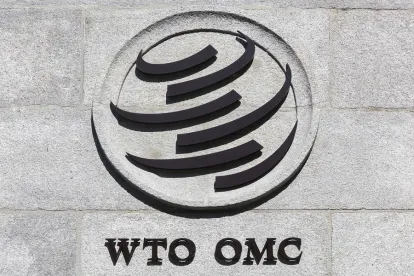A panel report issued by the World Trade Organization (WTO) in June 2019 concludes that preferences for in-state manufacturers, a common feature of many state renewable energy statutes, violate the General Agreement on Tariffs and Trade (GATT). While the ruling does not result in immediate invalidation of those laws, it opens up the possibility of countervailing requirements and may create pressure for the repeal of in-state preference provisions.
GATT, WTO, and the Architecture of World Trade
Established in the years following World War II, GATT established the legal foundation for the steady reduction in reductions in tariffs and other barriers to trade. Partly as a result of GATT, international trade flourished in the post-war period. The WTO, established in 1993 as part of the Uruguay Round of GATT negotiations, created formalized dispute resolution processes to address disputes between GATT parties, including a Dispute Resolution Body (DRB). Expert panels, like the one that issued the recent report, are used by the DRB to resolve disputes that cannot be resolved by informal consultations between the disputing parties. Unlike a domestic court case, an unfavorable DRB ruling does not result in the invalidation of the challenged law or practice. Instead, it permits the party harmed by the challenged practice to negotiate compensation, generally in the form of countervailing tariffs in the same sector as the challenged trade practice.
GATT establishes several principles aimed at reducing trade barriers and thereby increasing international commerce. These include Article IV, which requires that imported products must be accorded no less favorable treatment than like domestic products under the laws and regulations of the importing country.
India's Complaint Against State Preferences for In-State Manufacturers
In 2016, India asserted that in-state preferences for programs designed to encourage renewable energy or clean fuels violate GATT, and requested a consultation with the United States. Those consultations failed to resolve the dispute, causing India to submit a complaint to the WTO in 2017. India’s complaint generally asserts that in-state preference provisions in several states violate GATT. For example, the complaint attacks the incentives for use of solar panels and inverters included in Washington’s Community Solar program, which offered incentives for the construction of community-owned solar generation (now exhausted), and substantially increases those incentives if solar panels or inverters manufactured in Washington are used in constructing the community solar system. It levels charges against similar programs in California, Connecticut, Michigan, Delaware, and Minnesota, as well as Montana programs giving preferences or tax incentives for in-state production of methanol and biofuels for use as motor fuels.
The WTO panel report largely upholds India’s claim. It concludes that these special incentives for in-state renewable energy producers result in Indian producers of the same products receiving less favorable treatment, thereby violating GATT.
The Outlook for In-State Preferences
While far from fatal to the laws India challenged, the panel ruling, if it stands, may cast a shadow on those laws. The United States still has the option to appeal the panel ruling. But absent a successful appeal, India is likely to seek countervailing duties on U.S. producers seeking access to India’s massive renewable energy market. This, in turn, will create pressure on the involved states to remove the offending provisions from their statues.
The panel ruling also underscores the vulnerability of such state preferences to challenges under the Commerce Clause of the U.S. Constitution. The Commerce Clause has long been interpreted by the U.S. courts to bar protectionist measures imposed by one state against the products of another state. This principle applies to renewable energy as it does to any other area of interstate commerce. For example, Judge Richard Posner of the U.S. Court of Appeals for the Seventh Circuit observed that Michigan’s renewable portfolio standard, which barred out-of-state renewables from counting toward compliance, "trips over an insurmountable constitutional objection” because “Michigan cannot, without violating the commerce clause, discriminate against out-of-state renewable energy.” And the U.S. Court of Appeals for the Eighth Circuit concluded that a Minnesota statute barring imports of electricity that increased Minnesota’s statewide greenhouse gas emissions violated the Commerce Clause.
While other challenges to state renewable energy laws have not fared so well, the cases taken together suggest that state preferences like those addressed in the WTO panel decision are likewise vulnerable to constitutional challenge in the U.S. courts. How that plays out in practice remains to be seen.





 />i
/>i
